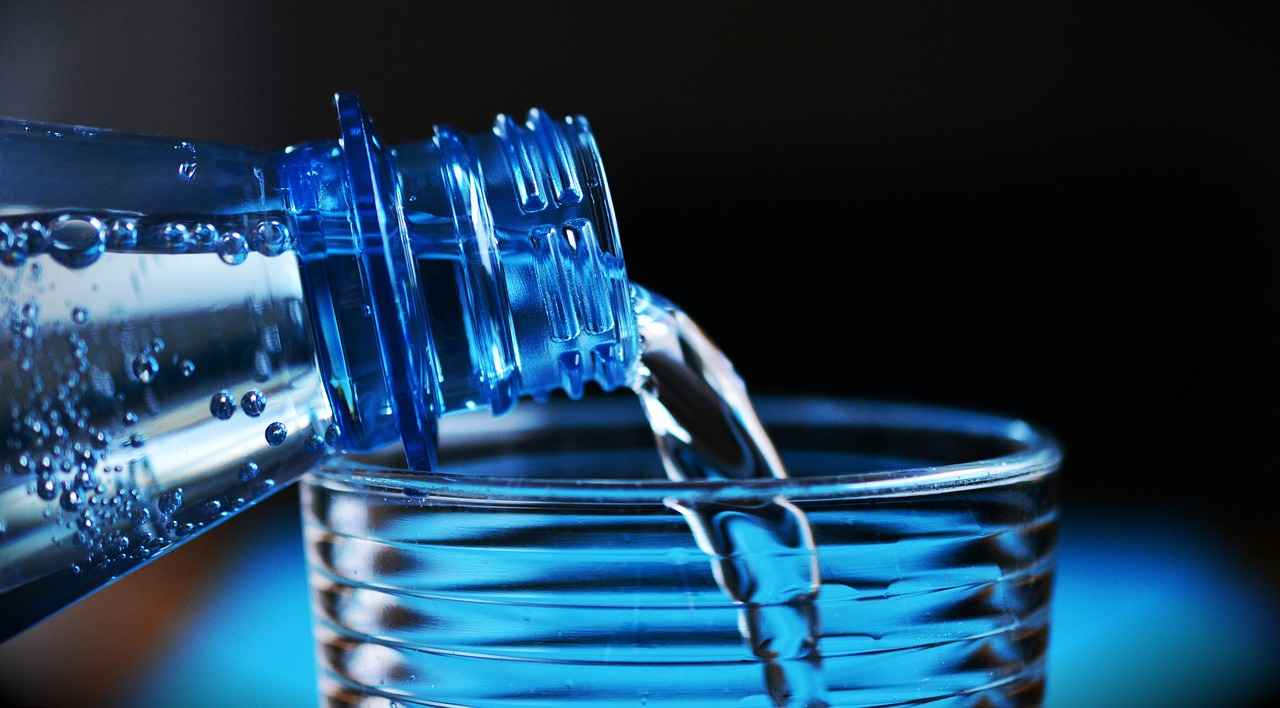This article delves into the profound effects of a 3-day water fast, highlighting the physical, mental, and emotional transformations that individuals often experience before and after the fast. By examining expert insights and offering practical tips, this guide aims to equip readers with the knowledge necessary to embark on their own fasting journey.
What is Water Fasting?
Water fasting is a practice where individuals abstain from all food and caloric beverages, consuming only water for a specified period. This method is often embraced for its potential health benefits, including detoxification and weight loss. Understanding the fundamentals of water fasting is essential for anyone considering this approach.
Benefits of Water Fasting
Water fasting can provide numerous benefits. Here are some of the most notable:
- Weight Loss: The body shifts from using glucose to fat for energy, resulting in significant fat reduction.
- Improved Metabolic Health: Enhanced insulin sensitivity and better blood sugar levels are common outcomes.
- Potential Longevity Effects: Some studies suggest that fasting may contribute to a longer lifespan.
Preparing for a 3-Day Water Fast
Preparation is crucial for a successful water fast. Here are some steps to consider:
- Dietary Adjustments: Gradually reduce processed foods and increase hydration in the days leading up to the fast.
- Mental Preparation: Set clear intentions and prepare for potential challenges to enhance your commitment.
Experiencing the 3-Day Water Fast
The experience of fasting can vary widely among individuals. Common experiences include:
- Physical Symptoms: Many report hunger pangs, fatigue, or headaches. Recognizing these signs can aid in coping.
- Mental Clarity: Interestingly, many individuals experience heightened mental clarity during fasting as the body adapts to using ketones for energy.
Post-Fast Recovery and Refeeding
Recovery after a water fast is just as important as the fast itself. Properly breaking the fast can maximize benefits:
- Breaking the Fast Safely: Start with small, easily digestible foods to prevent gastrointestinal distress.
- Long-term Benefits: Sustained weight loss and improved health markers can result from incorporating fasting into your lifestyle.
Potential Risks and Considerations
While water fasting can offer numerous benefits, it is essential to be aware of potential risks. Individuals with certain medical conditions or those taking specific medications should consult a healthcare provider before embarking on a fast. Common side effects may include dizziness, fatigue, and electrolyte imbalances.
In conclusion, a 3-day water fast can lead to significant transformations in physical, mental, and emotional health. By understanding the preparation, experience, and recovery phases, individuals can navigate their fasting journey more effectively. Always consult with a healthcare professional before starting any fasting regimen to ensure it aligns with your health goals.

What is Water Fasting?
Water fasting is a practice that involves abstaining from all food and caloric beverages, consuming only water for a specified period. This method is gaining popularity not only for its potential detoxification benefits but also for its role in weight loss and various health improvements. Individuals often embark on a water fast to reset their bodies, enhance mental clarity, or explore the physiological effects of fasting.
During a water fast, the body undergoes significant metabolic changes. Initially, it relies on glycogen stores for energy, but as these reserves deplete, the body transitions to burning fat for fuel. This metabolic shift can lead to rapid weight loss, making water fasting appealing to those seeking to shed pounds quickly. However, the benefits extend beyond weight loss.
Research indicates that water fasting may also improve insulin sensitivity and support metabolic health. By reducing insulin levels and promoting fat oxidation, fasting can help regulate blood sugar levels, which is crucial for preventing chronic diseases such as type 2 diabetes. Moreover, the process of autophagy, which is enhanced during fasting, allows the body to clear out damaged cells and regenerate new ones, potentially contributing to longevity.
For many, the mental aspect of water fasting is equally transformative. Individuals often report experiencing heightened mental clarity and focus during the fasting period. This phenomenon can be attributed to the body’s adaptation to using ketones as an energy source instead of glucose, which may lead to improved cognitive function.
However, embarking on a water fast requires careful preparation. It is advisable to gradually reduce caloric intake and transition to a diet rich in whole foods before starting the fast. This approach helps to ease the body into the fasting state and minimizes discomfort. Additionally, mental preparation is crucial; setting clear intentions and understanding the challenges of fasting can enhance the overall experience.
While the benefits of water fasting are compelling, it is essential to recognize that this practice is not suitable for everyone. Individuals with certain health conditions, such as diabetes or eating disorders, should consult a healthcare professional before attempting a water fast. Furthermore, awareness of potential side effects, such as fatigue, dizziness, and headaches, can help individuals manage their expectations and cope effectively during the fast.
In conclusion, water fasting is a powerful practice that can lead to various physical and mental transformations. With proper preparation and understanding, individuals can harness the benefits of this fasting method while minimizing risks. As interest in fasting continues to grow, ongoing research will likely uncover even more insights into its effects on health and well-being.

Benefits of Water Fasting
Water fasting, the practice of abstaining from all food and caloric beverages while consuming only water, has gained popularity for its potential health benefits. Among these benefits, the most notable include weight loss, improved metabolic health, and even potential effects on longevity. Understanding these advantages can shed light on why many individuals are drawn to this fasting method.
Water fasting is not merely a trend; it is a practice with deep historical roots and a growing body of scientific support. By exploring the various benefits of this fasting approach, we can better appreciate its role in modern health and wellness.
One of the most immediate and noticeable effects of water fasting is weight loss. During a water fast, the body transitions from using glucose for energy to burning stored fat. This metabolic shift can lead to significant fat reduction in a short period.
- Caloric Deficit: The absence of food intake creates a caloric deficit, which is essential for fat burning.
- Fat Adaptation: As the body adapts to fasting, it becomes more efficient at utilizing fat stores for energy.
Water fasting has been linked to several improvements in metabolic health markers. Studies indicate that fasting can enhance insulin sensitivity and stabilize blood sugar levels. These changes are crucial for preventing chronic diseases such as type 2 diabetes.
- Insulin Sensitivity: Enhanced insulin sensitivity can lead to better glucose control.
- Cholesterol Levels: Some research suggests that fasting may help lower LDL cholesterol and triglycerides.
Emerging research suggests that water fasting may have effects on longevity. Animal studies have indicated that caloric restriction, including fasting, can extend lifespan. While human studies are still ongoing, the potential for enhanced longevity makes water fasting an intriguing area of study.
In addition to physical benefits, many individuals report experiencing heightened mental clarity and improved emotional well-being during water fasting. This can be attributed to the body’s shift in energy sources and the psychological effects of fasting.
- Increased Focus: Many fasters report a surge in cognitive function and focus, likely due to ketone production.
- Emotional Resilience: The discipline required for fasting can enhance emotional strength and resilience.
Water fasting is often touted for its detoxification benefits. By allowing the digestive system to rest, the body can focus on eliminating toxins and repairing cells. This detoxification process can lead to improved skin health, increased energy levels, and a general sense of well-being.
While the benefits of water fasting are compelling, it is important to approach this practice with caution. Consulting with healthcare professionals before undertaking a water fast is crucial, especially for individuals with pre-existing health conditions.
- Start Slowly: If you are new to fasting, consider starting with shorter fasts before attempting a 3-day water fast.
- Stay Hydrated: Ensure adequate water intake during the fast to prevent dehydration.
In conclusion, the benefits of water fasting extend beyond mere weight loss. With improvements in metabolic health, potential longevity effects, and enhanced mental clarity, it is no wonder that this fasting method continues to attract attention. As research evolves, water fasting may become an integral part of health and wellness strategies for many individuals.
Weight Loss and Water Fasting
One of the most immediate and noticeable effects of water fasting is weight loss. When the body enters a fasting state, it undergoes a remarkable metabolic shift. Initially, the body relies on glucose stored in the liver and muscles for energy. However, as fasting continues, typically within 24 hours, the body begins to deplete these glucose reserves and transitions to utilizing fat as its primary energy source. This shift can lead to significant fat reduction over a relatively short period.
The process of fat burning during a water fast is not just about weight loss; it also involves complex biochemical changes. When the body starts breaking down fat for energy, it produces ketones, which serve as an alternative fuel source. This metabolic state, known as ketosis, can enhance fat loss and provide sustained energy levels, making it easier for individuals to continue their fasting journey.
Furthermore, the caloric deficit created by abstaining from food is a critical factor in weight loss. As the body begins to burn stored fat, individuals may notice rapid changes in their body composition. Research indicates that individuals who are overweight or obese may experience even more pronounced effects due to the larger fat reserves available for energy. This can lead to a significant reduction in body weight and fat percentage, often within just a few days.
Another important aspect of water fasting is its impact on muscle preservation. Contrary to common misconceptions, short-term fasting does not necessarily lead to muscle loss. Studies suggest that during a 3-day water fast, the body can effectively preserve muscle mass while promoting fat loss. This is particularly beneficial for those looking to maintain their metabolic rate, as muscle tissue plays a crucial role in calorie expenditure.
In addition to weight loss, water fasting can also result in improvements in various metabolic health markers. For instance, insulin sensitivity often improves during fasting, which can help regulate blood sugar levels. This is vital for individuals at risk of developing type 2 diabetes or those looking to enhance their overall metabolic health.
To maximize the benefits of water fasting for weight loss, individuals should consider proper preparation and aftercare. Gradually reducing caloric intake and avoiding processed foods before beginning a fast can ease the transition. Post-fast, it is essential to reintroduce food slowly, starting with small, nutrient-dense meals to avoid gastrointestinal discomfort.
In conclusion, water fasting presents a unique opportunity for individuals seeking to lose weight and improve their metabolic health. By understanding the physiological changes that occur during fasting, individuals can better prepare themselves for a successful fasting experience and achieve their health goals effectively.
- Key Benefits of Water Fasting:
- Significant weight loss through fat burning
- Preservation of muscle mass
- Improved metabolic health markers
- Preparation Tips:
- Gradually reduce caloric intake
- Stay hydrated
- Avoid processed foods
- Post-Fast Recovery:
- Reintroduce food slowly
- Start with easily digestible meals
- Focus on nutrient-dense options
Caloric Deficit and Fat Burning
When engaging in a water fast, the body undergoes significant metabolic changes that can lead to a state known as caloric deficit. This occurs when the body consumes fewer calories than it expends, prompting it to utilize stored energy, primarily in the form of fat. This shift not only aids in weight loss but also triggers a series of physiological responses that can benefit overall health.
During the initial stages of a water fast, the body depletes its glycogen stores, which are the carbohydrates stored in the liver and muscles. Once these stores are exhausted, the body begins to rely on fat as its primary energy source. This metabolic switch is crucial for those looking to reduce body fat, particularly individuals who are overweight or obese. The rapid fat burning associated with this process can lead to noticeable weight loss within just a few days.
In addition to weight loss, entering a caloric deficit through water fasting can enhance fat oxidation, which is the process of breaking down fatty acids for energy. As the body adapts to this new energy source, it may also improve its insulin sensitivity, which is vital for maintaining stable blood sugar levels and reducing the risk of type 2 diabetes.
- Enhanced Fat Metabolism: The body becomes more efficient at breaking down fat stores.
- Improved Hormonal Balance: Fasting can influence hormones related to fat storage and appetite regulation.
- Detoxification: The absence of food allows the body to focus on eliminating toxins.
However, it’s important to approach water fasting with caution. While the benefits can be significant, the process can also lead to potential side effects, such as fatigue, dizziness, or nutrient deficiencies if not managed properly. To mitigate these risks, individuals should consider consulting with a healthcare professional before embarking on a prolonged fast.
For those new to fasting, starting with shorter durations, such as a 24-hour fast, can help the body adapt gradually. This allows individuals to gauge their response and understand how their body reacts to the absence of food. As they become more comfortable, they may choose to extend their fasting duration.
In summary, a caloric deficit achieved through water fasting can effectively promote fat burning and weight loss. However, understanding the body’s responses and preparing adequately are key to maximizing the benefits while minimizing potential risks. With proper guidance and a mindful approach, water fasting can be a powerful tool for those seeking to improve their health and achieve their weight loss goals.
Muscle Preservation
during weight loss is a critical concern for many individuals aiming to improve their body composition. Studies indicate that short-term water fasting can be an effective strategy for preserving muscle mass while simultaneously promoting fat loss. This dual benefit is essential for maintaining a healthy metabolic rate, which is often compromised during traditional dieting methods.
When the body undergoes a water fast, it enters a state of ketosis, where it begins to utilize fat stores for energy instead of relying on carbohydrates. This metabolic shift is not only beneficial for fat loss but also plays a significant role in muscle preservation. During this period, the body adapts to the absence of food by prioritizing essential functions and maintaining muscle tissue to some extent.
- Reduced Protein Breakdown: Research suggests that fasting can reduce the rate of protein breakdown in muscles, allowing individuals to retain more muscle mass even while losing weight.
- Hormonal Changes: Water fasting influences hormone levels, including an increase in human growth hormone (HGH), which is crucial for muscle maintenance and growth.
- Caloric Deficit: While in a caloric deficit, the body tends to spare muscle tissue when fat stores are available for energy, particularly during short fasting periods.
Moreover, the preservation of muscle mass during fasting can be attributed to the body’s natural response to stress. When faced with a lack of food, the body activates survival mechanisms that help to sustain muscle tissue. This is especially important for those who are engaging in weight loss strategies, as losing muscle can lead to a decrease in metabolic rate, making it harder to maintain weight loss in the long run.
Additionally, maintaining muscle mass is crucial for overall health. Muscles play a vital role in metabolism, mobility, and overall physical function. Therefore, strategies that promote muscle preservation during weight loss, such as water fasting, can lead to better health outcomes.
Expert Insights: Nutritionists and fitness experts often recommend incorporating resistance training during a fasting period to further enhance muscle preservation. Engaging in strength training while fasting can stimulate muscle protein synthesis, which counteracts the potential muscle loss that may occur during prolonged fasting.
Furthermore, it’s essential to approach water fasting with a well-informed mindset. Individuals should consider their personal health conditions and consult healthcare professionals before embarking on a fasting journey. Understanding the balance between fasting and maintaining a healthy lifestyle can maximize the benefits of muscle preservation while promoting effective fat loss.
In conclusion, short-term water fasting offers a unique approach to weight loss that prioritizes muscle preservation. By leveraging the body’s natural mechanisms and incorporating strategic practices, individuals can achieve their weight loss goals without sacrificing muscle mass. This balanced approach not only supports metabolic health but also fosters a sustainable lifestyle that can lead to long-term success.
Metabolic Health Improvements
are increasingly recognized as crucial for overall well-being. One effective method to enhance these markers is through water fasting. This practice, which involves abstaining from all food and caloric beverages while consuming only water, has shown promising effects on various metabolic health indicators.
Research indicates that water fasting can significantly improve insulin sensitivity, which is vital for regulating blood sugar levels. Insulin sensitivity refers to how effectively the body’s cells respond to insulin, a hormone that helps control glucose levels in the bloodstream. When insulin sensitivity improves, the body can utilize glucose more efficiently, reducing the risk of type 2 diabetes and other metabolic disorders.
Moreover, water fasting may lead to lower blood sugar levels. A study published in the journal Cell Metabolism found that individuals who engaged in short-term fasting experienced a notable decrease in their blood glucose levels. This effect is particularly beneficial for those at risk of developing metabolic syndrome, a cluster of conditions that increase the risk of heart disease, stroke, and diabetes.
During a water fast, the body undergoes several physiological changes that contribute to these improvements. Initially, the body depletes its glycogen stores and begins to utilize fat as its primary energy source. This metabolic shift not only aids in weight loss but also enhances the body’s ability to manage glucose. As fat stores are broken down, the liver produces ketones, an alternative energy source that has been linked to improved brain function and reduced inflammation.
In addition to insulin sensitivity and blood sugar regulation, water fasting can also positively affect lipid profiles. Many studies have shown that fasting can lead to reductions in triglycerides and LDL cholesterol levels, both of which are significant risk factors for cardiovascular diseases. A healthier lipid profile contributes to overall metabolic health and enhances the body’s ability to manage energy effectively.
It is essential to note that while water fasting can provide these benefits, it is not suitable for everyone. Individuals with certain medical conditions, such as diabetes or eating disorders, should consult with a healthcare professional before attempting any form of fasting. Additionally, the duration and approach to fasting should be tailored to individual health needs and goals.
For those considering a water fast, proper preparation can enhance the experience and outcomes. Gradually reducing food intake and incorporating more whole foods into the diet prior to fasting can help the body adjust. Staying hydrated and ensuring adequate electrolyte balance during the fast is also crucial for minimizing discomfort and maximizing the benefits.
In summary, water fasting can lead to significant improvements in metabolic health markers, including insulin sensitivity and blood sugar levels. These changes are vital for disease prevention and overall health. By understanding the mechanisms behind these improvements and preparing adequately, individuals can harness the benefits of water fasting to enhance their metabolic health.

Preparing for a 3-Day Water Fast
Preparing for a 3-day water fast is a crucial step that can significantly influence the overall experience and outcomes of the fast. Proper preparation not only enhances the fasting experience but also minimizes potential discomfort and health risks. Here, we will explore various aspects of preparation, including dietary adjustments, mental readiness, and hydration strategies that can help you embark on your fasting journey with confidence.
Understanding the Importance of Preparation
Preparation is essential for a successful water fast. It sets the foundation for your body to adapt to the absence of food. By preparing adequately, you can reduce the likelihood of experiencing severe hunger pangs, fatigue, or other discomforts that are often associated with fasting.
Dietary Adjustments Before Fasting
Making gradual dietary changes in the days leading up to your fast can ease the transition. Here are some recommended steps:
- Eliminate Processed Foods: Start by reducing or eliminating processed foods from your diet. Focus on whole, nutrient-dense foods, such as fruits, vegetables, and lean proteins.
- Increase Hydration: Begin drinking more water to ensure your body is well-hydrated before the fast. Aim for at least 8-10 glasses of water a day.
- Reduce Caffeine and Sugar: Gradually cut back on caffeine and sugar intake to avoid withdrawal symptoms during the fast.
Mental Preparation for Fasting
Mental readiness is just as important as physical preparation. Here are some strategies to help you prepare mentally:
- Set Clear Intentions: Define your reasons for undertaking the fast. Whether it’s for detoxification, weight loss, or spiritual reasons, having a clear purpose can motivate you throughout the process.
- Educate Yourself: Understanding what to expect during the fast can alleviate anxiety. Research common experiences and challenges associated with water fasting.
- Practice Mindfulness: Engage in mindfulness or meditation practices to cultivate a calm and focused mindset. This will help you remain resilient when faced with cravings or discomfort.
Hydration Strategies
During a water fast, hydration is key. Here are some tips to ensure you stay hydrated:
- Drink Plenty of Water: Aim to drink at least 2-3 liters of water daily. Consider adding a pinch of sea salt or lemon juice for electrolytes, but avoid any caloric additives.
- Monitor Your Body: Pay attention to your body’s signals. If you feel thirsty, drink more water. Staying ahead of your hydration needs can help prevent headaches and fatigue.
Physical Readiness
In addition to dietary and mental preparation, it’s wise to assess your physical readiness for a water fast. Consult with a healthcare professional, especially if you have underlying health conditions. They can provide personalized advice and ensure that fasting is safe for you.
Creating a Support System
Having a support system can greatly enhance your fasting experience. Whether it’s friends, family, or online communities, sharing your goals and experiences can provide encouragement and motivation.
In conclusion, preparing for a 3-day water fast involves a comprehensive approach that includes dietary adjustments, mental preparedness, and hydration strategies. By taking the time to prepare your body and mind, you can enhance your fasting experience and achieve your desired outcomes with greater ease and comfort.
Dietary Adjustments Before Fasting
Preparing for a water fast requires more than just the decision to abstain from food; it involves a thoughtful approach to dietary adjustments that can significantly enhance the fasting experience. Making gradual changes to your diet before the fast can help to ease the transition and minimize discomfort during the fasting period.
One of the first steps to consider is reducing processed foods. These foods often contain high levels of sugar, unhealthy fats, and additives that can lead to cravings and energy crashes. By eliminating these items from your diet in the days leading up to your fast, you can help stabilize your blood sugar levels and prepare your body for a more balanced state. Instead, focus on incorporating whole foods such as fruits, vegetables, whole grains, and lean proteins. This shift not only nourishes your body but also helps to reduce the shock of suddenly stopping food intake.
In addition to modifying your food choices, increasing hydration is crucial. Drinking plenty of water in the days before your fast can help your body adjust to the upcoming lack of food. Staying hydrated aids in flushing out toxins and can also reduce feelings of hunger. Aim for at least 8-10 glasses of water daily, and consider adding herbal teas or electrolyte-rich beverages to further support your hydration levels.
Another important aspect of preparation is mindful eating. Pay attention to how you feel after consuming different foods. This practice can help you identify which foods make you feel energized and which may lead to sluggishness or cravings. By tuning into your body’s responses, you can make more informed choices that will support your fasting journey.
Moreover, it’s beneficial to gradually decrease your caloric intake as the fast approaches. This gradual reduction can help your body adapt to fasting more smoothly. Start by cutting back on large meals and instead opt for smaller, nutrient-dense snacks. This method can prevent overwhelming your system and ease the transition into a complete fast.
As you adjust your diet, it’s also essential to focus on mental preparation. Understanding the challenges you may face during the fast, such as hunger pangs or cravings, can help bolster your resolve. Setting clear intentions for your fast can provide motivation and enhance your commitment. Consider journaling your goals and feelings as you prepare, which can serve as a helpful reminder during moments of temptation.
Ultimately, the key to a successful water fast lies in the preparation phase. By making gradual dietary changes, reducing processed foods, increasing hydration, and focusing on mindful eating, you can set the stage for a smoother fasting experience. These adjustments not only prepare your body physically but also support your mental readiness, ensuring that you approach your water fast with confidence and clarity.
| Preparation Steps | Description |
|---|---|
| Reduce Processed Foods | Eliminate high sugar and high-fat processed foods to stabilize blood sugar levels. |
| Increase Hydration | Drink more water and consider herbal teas to help flush out toxins. |
| Mindful Eating | Pay attention to how different foods affect your energy and cravings. |
| Gradual Caloric Reduction | Slowly decrease meal sizes to ease the transition into fasting. |
| Mental Preparation | Set intentions and journal your goals to enhance commitment. |
Mental Preparation for Fasting
Preparing mentally for a water fast is just as important as the physical preparations. Mental readiness is crucial for enduring a water fast, as it influences your ability to maintain focus and commitment throughout the process. By setting clear intentions and understanding potential challenges, you can significantly enhance your resilience during the fast.
One of the first steps in mental preparation is to set specific goals for your fasting journey. Ask yourself what you hope to achieve: Is it detoxification, weight loss, or perhaps a spiritual experience? Having a clear purpose will keep you motivated and help you navigate the inevitable hurdles that arise during the fast.
Additionally, understanding the potential challenges ahead can prepare you psychologically. Water fasting can lead to physical symptoms such as hunger pangs, fatigue, and mood swings. Recognizing these as normal experiences can help you maintain a positive mindset. You might also consider journaling your thoughts and feelings before and during the fast. This practice can provide insight into your emotional state and help you track your progress.
Another effective strategy is to visualize your success. Picture yourself completing the fast and the benefits that will follow. Visualization can create a mental roadmap that guides you through difficult moments, reinforcing your commitment to the process.
Engaging in mindfulness practices such as meditation or deep breathing exercises can also enhance your mental preparedness. These techniques can help you stay centered and calm, especially when cravings or discomfort arise. Taking time to focus on your breath can ground you and remind you of your intentions.
Moreover, surrounding yourself with supportive individuals can make a significant difference. Share your fasting plans with friends or family who can encourage you and help you stay accountable. Online communities or support groups focused on fasting can also provide valuable insights and motivation.
It’s essential to educate yourself about the fasting process. Understanding the physiological changes that occur during a water fast can demystify the experience and reduce anxiety. Knowledge can empower you, making you feel more in control as you navigate the challenges.
Lastly, prepare for the transition back to regular eating. Knowing how to break your fast safely can alleviate concerns about refeeding syndrome and gastrointestinal distress. This foresight can ease your mind and allow you to focus on the positive aspects of your fasting experience.
In summary, mental preparation is a multifaceted process that involves setting clear intentions, understanding challenges, practicing mindfulness, and seeking support. By investing time in your mental readiness, you can enhance your commitment and resilience, making your water fasting experience more rewarding and transformative.

Experiencing the 3-Day Water Fast
The journey of a 3-day water fast can be a transformative experience, but it is essential to recognize that individual experiences may differ significantly. This variability can stem from factors such as personal health, previous fasting experience, and mental preparedness. Understanding the common experiences associated with this fasting method can help individuals manage their expectations and better prepare for potential challenges.
Physical Symptoms During the Fast
During a water fast, many individuals report experiencing a range of physical symptoms. These can include:
- Hunger Pangs: Initially, the body may react with intense cravings for food, especially in the first 24 hours.
- Fatigue: As the body adapts to using fat for energy, feelings of tiredness may occur.
- Headaches: Dehydration or withdrawal from caffeine can lead to headaches.
- Dizziness: Some may experience lightheadedness, particularly if they are not adequately hydrated.
Recognizing these signs is vital for coping effectively during the fast. Staying hydrated and listening to your body can help mitigate discomfort.
Mental Clarity and Focus
Interestingly, many participants in a 3-day water fast report a sense of heightened mental clarity and focus. This phenomenon is often attributed to the body’s adaptation to utilizing ketones for energy instead of glucose. As the fast progresses, individuals may find that their cognitive functions improve, leading to increased productivity and creativity. This mental clarity can be a motivating factor for those considering a water fast.
Emotional Experiences During Fasting
Alongside physical and mental changes, emotional experiences can also fluctuate during a water fast. Some individuals may encounter:
- Emotional Release: Fasting can bring unresolved emotions to the surface, prompting reflection and personal growth.
- Heightened Sensitivity: Many report increased sensitivity to their surroundings and emotions, which can be both enlightening and overwhelming.
- Sense of Accomplishment: Completing a fast can foster a sense of achievement and boost self-esteem.
Being aware of these emotional shifts can help individuals navigate their feelings and maintain a positive mindset throughout the fasting period.
Post-Fast Reflections
After completing the 3-day water fast, individuals often reflect on their experiences. Many report feeling a renewed sense of appreciation for food and a clearer understanding of their body’s needs. This newfound awareness can lead to healthier eating habits and a more mindful approach to nutrition.
Additionally, the fast can serve as a catalyst for ongoing health and wellness practices. Many individuals choose to incorporate intermittent fasting or other dietary changes based on the insights gained during their water fast.
Conclusion
In summary, the experience of a 3-day water fast is multifaceted, encompassing various physical, mental, and emotional dimensions. By understanding these common experiences, individuals can prepare more effectively for their fasting journey, ultimately leading to a more rewarding and transformative experience.
Physical Symptoms During the Fast
During a 3-day water fast, individuals often encounter a variety of physical symptoms that can significantly impact their experience. Understanding these symptoms is crucial for effectively managing the fasting process. Here, we will explore common physical symptoms, their underlying causes, and practical strategies for coping.
- Hunger Pangs: One of the most prevalent sensations during a fast, hunger pangs occur as the body signals its need for food. These sensations can be intense, especially in the first 24-48 hours.
- Fatigue: As the body transitions from burning glucose to fat for energy, many individuals report feelings of tiredness or lethargy. This fatigue can be attributed to the reduced caloric intake and changes in energy metabolism.
- Headaches: Dehydration, caffeine withdrawal, and changes in blood sugar levels can contribute to headaches during a fast. It is essential to stay adequately hydrated to mitigate this symptom.
- Dizziness: Some individuals may experience dizziness or lightheadedness, particularly if they are not consuming enough water or electrolytes.
- Digestive Changes: As the body adjusts to fasting, some may experience changes in bowel movements, including constipation or diarrhea.
Recognizing these physical symptoms is the first step in managing them effectively. Here are some practical coping strategies:
- Stay Hydrated: Drinking plenty of water can help alleviate hunger pangs and reduce the risk of headaches and dizziness.
- Rest When Needed: Fatigue is common, so it’s important to listen to your body and rest as needed. Short naps or relaxation techniques can be beneficial.
- Mindfulness Practices: Engaging in mindfulness or meditation can help you cope with discomfort and maintain focus during the fast.
- Electrolyte Balance: Consider adding a pinch of salt to your water or using electrolyte supplements to help manage symptoms like dizziness.
It is important to understand that these symptoms are often temporary and a natural part of the body’s adaptation to fasting. As the fast progresses, many individuals report a decrease in these symptoms, often accompanied by a sense of mental clarity and improved focus. This shift occurs as the body becomes more efficient at utilizing fat stores for energy, transitioning into a state known as ketosis.
While the initial days of a water fast can be challenging due to these physical symptoms, they often serve as reminders of the body’s resilience and ability to adapt. Being prepared and informed can significantly enhance the fasting experience, allowing individuals to reap the numerous benefits associated with water fasting.
Mental Clarity and Focus
During a water fast, many individuals report experiencing a significant boost in mental clarity and focus. This intriguing phenomenon can be explained by the body’s remarkable ability to adapt to fasting conditions, primarily by shifting its energy source from glucose to ketones. Ketones, which are produced when the body breaks down fat for energy, can provide a more stable and efficient fuel for the brain.
When fasting, the body undergoes several physiological changes that contribute to enhanced cognitive function. As glycogen stores are depleted, the liver converts fatty acids into ketones, which then serve as an alternative energy source. This transition not only helps maintain energy levels but may also have neuroprotective effects. Research suggests that ketones can improve mitochondrial function and reduce oxidative stress, both of which are crucial for optimal brain health.
Moreover, fasting has been shown to increase the production of brain-derived neurotrophic factor (BDNF), a protein that plays a vital role in promoting the survival of neurons and enhancing synaptic plasticity. Elevated BDNF levels are associated with improved learning, memory, and overall cognitive performance. Thus, individuals engaging in water fasting may find that their ability to concentrate and process information is significantly improved.
Additionally, fasting can lead to a reduction in the levels of insulin and glucose in the bloodstream, which can help stabilize mood and reduce feelings of anxiety. When blood sugar levels are stable, individuals are less likely to experience the energy crashes and mood swings that can hinder focus. This steady state allows for prolonged periods of concentration, making fasting an appealing option for those looking to enhance their productivity.
Many people also report feeling a sense of clarity and purpose during fasting. This psychological aspect can be attributed to the intentional act of abstaining from food, which often leads to a heightened awareness of one’s thoughts and emotions. The practice of fasting encourages introspection, allowing individuals to connect with their mental state on a deeper level. As distractions from food are removed, many find that they can engage in more profound and meaningful thought processes.
However, it’s important to note that the experience of mental clarity during fasting can vary among individuals. Some may initially struggle with concentration due to hunger or withdrawal from habitual eating patterns. Therefore, mental preparation is crucial for maximizing the cognitive benefits of fasting. Setting clear intentions and understanding the potential challenges can enhance resilience during this transformative process.
In summary, the relationship between fasting and mental clarity is complex yet fascinating. The body’s adaptation to utilizing ketones for energy, combined with the psychological benefits of fasting, can lead to remarkable improvements in focus and cognitive function. For those considering a water fast, understanding these dynamics can help set realistic expectations and foster a more enriching experience.

Post-Fast Recovery and Refeeding
Recovery after a water fast is as important as the fast itself. Knowing how to properly reintroduce food can help maximize benefits and minimize discomfort. The process of breaking a fast should be approached with care, as the body undergoes significant changes during the fasting period. This section will explore the best practices for refeeding and the importance of a gradual approach.
Understanding the Body’s State After Fasting
After a prolonged period without food, the body enters a state of heightened sensitivity. This means that the digestive system may react strongly to even small amounts of food. Therefore, it is essential to be mindful of what and how you eat when breaking the fast.
Breaking the Fast Safely
- Start Small: Begin with small portions of easily digestible foods such as bone broth, diluted fruit juices, or steamed vegetables. This helps the digestive system gradually adjust.
- Avoid Heavy Meals: Steer clear of rich, heavy meals immediately after fasting. Foods high in fats and sugars can cause gastrointestinal distress and negate the benefits of the fast.
- Hydration: Continue to prioritize hydration. Drinking water or herbal teas can aid digestion and help the body transition back to regular eating.
Foods to Reintroduce First
When considering what to eat after a fast, focus on nutrient-dense foods that are easy on the stomach:
| Food Type | Benefits |
|---|---|
| Bone Broth | Rich in minerals and easy to digest, it helps repair the gut lining. |
| Steamed Vegetables | Provides essential vitamins and minerals while being gentle on the stomach. |
| Fruits (e.g., watermelon, cucumber) | Hydrating and rich in fiber, they help kickstart digestion. |
Gradual Reintroduction of Regular Foods
After the initial refeeding phase, gradually reintroduce regular foods over the next few days. This process allows your body to adapt without overwhelming the digestive system:
- Day 1-2: Focus on soft, easy-to-digest foods.
- Day 3-4: Slowly add in proteins like fish or chicken, and whole grains.
- Day 5 onward: Reintroduce a wider variety of foods while monitoring how your body responds.
Listening to Your Body
It is crucial to pay attention to your body’s signals during the refeeding phase. If you experience discomfort or digestive issues, consider slowing down the reintroduction process. Everyone’s body reacts differently, so personalization is key.
Long-term Benefits of Proper Refeeding
Proper refeeding not only ensures a smoother transition back to normal eating but also enhances the long-term benefits of water fasting. By nourishing your body with wholesome foods, you can:
- Support metabolic health and maintain weight loss.
- Improve nutrient absorption, enhancing overall health.
- Reduce the risk of rebound weight gain and digestive issues.
In conclusion, the post-fast recovery phase is a critical component of the fasting experience. By following a structured refeeding plan and listening to your body, you can maximize the benefits of your water fast and pave the way for a healthier lifestyle.
Breaking the Fast Safely
Breaking a fast is a crucial phase that requires careful consideration to ensure a smooth transition back to regular eating. The way you reintroduce food can significantly impact your digestive system and overall well-being. Thus, it is essential to approach this phase with mindfulness and knowledge.
Initially, it is advisable to start with small portions of easily digestible foods. This practice can help prevent gastrointestinal distress, which is common when resuming eating after a prolonged period of fasting. Foods such as bone broth, smoothies, or steamed vegetables are excellent choices. They provide essential nutrients without overwhelming the digestive system.
Gradually increasing the complexity and quantity of your meals is also vital. After the initial refeeding, you can incorporate light proteins, such as eggs or fish, along with soft fruits like bananas or applesauce. These foods are gentle on the stomach and rich in nutrients, aiding in a smoother digestive process.
Moreover, it is critical to stay hydrated during this period. Drinking water or herbal teas can help facilitate digestion and keep your body functioning optimally. Avoiding heavy, greasy, or processed foods immediately after fasting is paramount, as these can lead to discomfort and bloating.
Listening to your body is key. Pay attention to how you feel as you reintroduce food. If you experience any signs of discomfort, such as bloating or nausea, it may be beneficial to revert to simpler foods for a while longer. This practice can help you gauge your body’s readiness for more complex meals.
In addition to physical considerations, mental awareness is essential during this phase. Many individuals may feel a psychological urge to overeat after a fast, driven by the anticipation of food. It is important to resist this temptation and focus on nourishing your body rather than indulging.
Furthermore, consulting with a healthcare professional or a nutritionist can provide personalized guidance tailored to your specific needs. They can help you create a refeeding plan that aligns with your health goals and ensures a safe transition back to regular eating.
Finally, understanding the long-term benefits of proper refeeding can motivate you to adopt healthy eating habits post-fast. A well-planned refeeding process can enhance the positive effects of fasting, such as improved metabolism and weight management, while minimizing potential risks.
In summary, breaking a fast safely is a vital component of the fasting experience. By starting with small, easily digestible foods, staying hydrated, and being mindful of your body’s signals, you can maximize the benefits of your fasting journey and support your overall health.
Long-term Benefits of Water Fasting
Water fasting, often viewed as a temporary dietary change, can have profound long-term health benefits that encourage individuals to adopt it as a regular practice. This fasting method involves abstaining from all food and caloric beverages, relying solely on water for hydration. The implications of this practice extend beyond immediate weight loss, offering sustained health improvements and enhanced well-being.
Sustained Weight Loss
One of the most compelling reasons to consider water fasting is its potential for sustained weight loss. During a water fast, the body shifts its energy source from glucose to fat, leading to significant fat reduction. This metabolic shift not only aids in losing weight but also helps maintain a healthy weight over time. Research indicates that individuals who incorporate intermittent fasting, including water fasting, into their lifestyle often experience better weight management compared to those who do not.
Improved Health Markers
Water fasting can lead to numerous health improvements that are beneficial in the long term. Studies have shown that fasting can enhance metabolic health by improving insulin sensitivity and stabilizing blood sugar levels. These factors are crucial for reducing the risk of chronic diseases such as type 2 diabetes and cardiovascular issues. By regularly practicing water fasting, individuals may find themselves with better blood lipid profiles and lower blood pressure, contributing to overall heart health.
Enhanced Mental Clarity
Another significant benefit of water fasting is its impact on mental clarity and cognitive function. Many individuals report experiencing heightened mental clarity and improved focus during fasting periods. This phenomenon is attributed to the body’s adaptation to utilizing ketones, produced from fat breakdown, as an energy source. Over time, this can lead to improved cognitive performance and potentially lower the risk of neurodegenerative diseases.
Detoxification and Cellular Repair
Water fasting also promotes detoxification and cellular repair. During fasting, the body initiates autophagy, a process where cells remove damaged components and regenerate new ones. This cellular cleanup is essential for maintaining optimal health and may contribute to longevity. Regular water fasting can enhance this process, supporting the body in its natural detoxification efforts and potentially reducing the risk of age-related diseases.
Emotional and Psychological Benefits
Beyond physical health, water fasting can also have profound emotional and psychological benefits. Many individuals report increased resilience and a greater sense of control over their eating habits. This practice can foster a healthier relationship with food, promoting mindfulness and reducing emotional eating. Over time, these psychological benefits can lead to improved mental health and overall life satisfaction.
Practical Tips for Incorporating Water Fasting
- Start Gradually: If you’re new to fasting, begin with shorter fasting periods, gradually increasing to longer durations.
- Stay Hydrated: Ensure adequate water intake during your fast to maintain hydration and support bodily functions.
- Listen to Your Body: Pay attention to how your body responds during fasting and adjust your approach as needed.
- Consult a Professional: If you have underlying health conditions, consider consulting a healthcare professional before starting a fasting regimen.
In summary, understanding the long-term effects of water fasting can encourage individuals to incorporate this practice into their lifestyle. With benefits such as sustained weight loss, improved health markers, enhanced mental clarity, and emotional well-being, water fasting presents a holistic approach to health that can lead to lasting positive changes.

Potential Risks and Considerations
While water fasting can offer numerous benefits, it is essential to recognize that it is not without its risks. Understanding these potential side effects and contraindications is crucial for anyone considering this fasting practice. Below, we explore the various aspects of water fasting that individuals should be aware of before embarking on a 3-day fast.
- Dehydration Risks: Although water fasting involves consuming water, individuals might still face the risk of dehydration, especially if they do not drink enough fluids. It is vital to stay adequately hydrated to support bodily functions.
- Electrolyte Imbalance: Prolonged fasting can lead to an imbalance in electrolytes, which can cause symptoms such as dizziness, muscle cramps, and fatigue. Monitoring electrolyte levels is essential for safe fasting.
- Blood Sugar Fluctuations: For individuals with diabetes or hypoglycemia, water fasting can lead to dangerously low blood sugar levels. It is crucial for these individuals to consult healthcare professionals before attempting a fast.
- Physical Symptoms: Many people experience physical symptoms such as headaches, fatigue, and irritability during a water fast. These symptoms can be uncomfortable and may deter individuals from completing the fast.
- Mental Health Considerations: Water fasting can also impact mental health. Individuals with a history of eating disorders or anxiety may find fasting triggers negative thoughts or behaviors. It is essential to assess mental readiness before starting.
- Contraindications: Certain medical conditions, such as kidney disease or heart problems, may make fasting unsafe. Always consult with a healthcare provider to assess personal health conditions and risks.
To ensure a safe water fasting experience, consider the following practical tips:
- Consult a Healthcare Professional: Before starting a water fast, it is advisable to consult with a healthcare professional, especially if you have pre-existing health conditions.
- Start Slowly: If you are new to fasting, consider starting with shorter fasts and gradually increasing the duration as your body adapts.
- Listen to Your Body: Pay attention to your body’s signals. If you experience severe discomfort or adverse effects, it may be best to end the fast and seek medical advice.
- Stay Hydrated: Ensure you drink plenty of water throughout the fast to maintain hydration levels and support bodily functions.
In conclusion, while water fasting can provide various health benefits, it is crucial to approach it with caution and awareness. Understanding the potential risks and taking necessary precautions can help individuals experience a safe and effective fasting journey.
Frequently Asked Questions
- What should I expect during a 3-day water fast?
During a 3-day water fast, you may experience a range of sensations. Initially, hunger pangs and fatigue are common, but many report an increase in mental clarity as the fast progresses. It’s like a rollercoaster ride of emotions and energy levels, but hang in there!
- Can I exercise while water fasting?
While light exercise like walking or yoga can be beneficial, it’s best to avoid intense workouts. Think of your body as a car running on empty; you wouldn’t push it too hard, right? Listen to your body and take it easy.
- How do I break a water fast safely?
Breaking a water fast should be done gently. Start with small, easily digestible foods like broth or fruits. Imagine your stomach is a delicate flower; you want to nurture it back to health after a period of dormancy.
- What are the long-term benefits of water fasting?
Long-term benefits can include sustained weight loss, improved metabolic health, and enhanced mental clarity. It’s like planting a seed; with proper care, you can reap a bountiful harvest in your health and well-being.
- Are there any risks associated with water fasting?
Yes, while water fasting can be beneficial, it’s not for everyone. Risks include dehydration, electrolyte imbalance, and fatigue. Always consult a healthcare professional before starting any fasting regimen, just like you’d check your map before a road trip!












